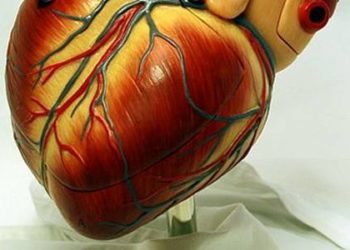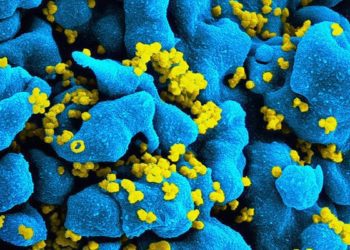2 Minute Medicine Rewind August 28, 2017
Continuous glucose monitoring (CGM) is a relatively new technology that utilizes a subcutaneously placed sensor to provide readings as often as every 5 minutes. In this randomized controlled trial, CGM was evaluated for its effectiveness in 158 patients with type 2 diabetes currently injecting insulin multiple times daily. Patients, age 35 to 79 years, with hemoglobin A1c levels between 7.5 and 9.9, were randomized to receive CGM or usual care and, at 24 weeks, investigators examined hemoglobin A1c as the primary outcome. Researchers found that the group that received CGM had a significantly lower hemoglobin A1c with a mean difference of -0.3% as compared to the usual care group (95% CI -0.5% to 0.0%, p=0.022). However, there was no significant difference between the two groups in terms of quality of life, using two general and three diabetes-specific measurements. There was also no significant difference in time spent hypoglycemic. Investigators concluded that CGM did improve glycemic control and may be of benefit in patients with type 2 diabetes receiving multiple insulin injections per day.
Though amino-terminal pro-B type natriuretic peptide (NT-proBNP) is useful as an indicator of severity and predictor of negative outcomes in heart failure, its utility as a guide for therapy is currently unknown. In this randomized controlled trial, 894 patients with ejection fraction less than or equal to 40%, a history of heart failure, and elevated natriuretic peptide levels in the last 30 days were randomized to either an NT-proBNP-guided strategy or usual care to determine whether NT-proBNP-guided treatment strategy improves cardiovascular mortality or first hospitalization for heart failure. Therapy guided by NT-proBNP involved titrating medications in order to achieve levels below 1000 pg/mL, whereas usual care involved adjusting therapy based on existing guidelines. The trial was prematurely stopped due to results showing no benefit to NT-proBNP-guided therapy, as 37% patients in both arms reached the primary outcome (HR 0.98, 95% CI 0.79 to 1.22, p=0.88). Additionally, results showed no significant difference in cardiovascular mortality (HR 0.94, 95% CI 0.65 to 1.37, p=0.75), all-cause mortality, number of hospitalizations for heart failure, or adverse events. Investigators therefore concluded that NT-proBNP-guided therapy is not superior compared to usual care.
Efficacy and Safety of Degludec versus Glargine in Type 2 Diabetes
There is a current lack of data on the cardiovascular safety profile of degludec, an ultra-long acting basal insulin, in patients with type 2 diabetes. In this double-blind randomized controlled trial, 7,637 patients were randomized to receive either degludec or insulin glargine once daily to compare degludec to insulin glargine in terms of cardiovascular outcomes, with a pre-specified non-inferiority margin corresponding to a hazard ratio (HR) of 1.3. Researchers found that degludec was non-inferior, as 8.5% of patients receiving degludec experienced a cardiovascular outcome compared to 9.3% of patients receiving insulin glargine (HR 0.91, 95% CI 0.78 to 1.06, p<0.001). Fasting glucose levels were also significantly lower at 24 months of follow-up in the degludec arm of the trial (p<0.001), as were rates of severe hypoglycemia (OR 0.73, 95% CI 0.60 to 0.89, p<0.001). The adverse event rate did not differ significantly between the two treatment groups. This study therefore shows that degludec is non-inferior to insulin glargine with respect to the incidence of adverse cardiovascular events.
Effect of Intensive Blood-Pressure Treatment on Patient-Reported Outcomes
The Systolic Blood Pressure Intervention Trial previously demonstrated that, in patients with hypertension with increased cardiovascular risk, treating systolic blood pressure to a goal of 120 mmHg, as compared to treatment to a goal of 140 mmHg, improved cardiovascular outcomes. The impact of such intensive therapy on patient-reported outcomes, however, had not been reported. In this randomized controlled trial, 9,361 patients were randomized to the more intensive treatment target of 120 mmHg or 140 mmHg. Patient-reported outcome measures included scores on the Patient Health Questionnaire 9-item depression scale (PHQ-9), the Physical Component Summary (PCS) and Mental Component Summary (MCS) of the Veterans RAND 12-Item Health Survey, in addition to their satisfaction with their blood pressure care.
Researchers found no difference between treatment groups with respect to the PCS of the Veterans RAND 12-Item Health Survey (p=0.90). Similarly, there were no significant differences in mean changes per year between the treatment groups with respect to the MCS (p=0.79) and PHQ-9 (p=0.86) outcomes. Treatment satisfaction, however, was significantly greater in the intensive treatment group with 74.4% reportedly ‘very satisfied’ with their care, as compared to 71.0% in the standard care group (p=0.03). This analysis therefore shows that, though cardiovascular outcomes and satisfaction were improved, intensive blood pressure treatment did not result in improvement in certain patient-reported outcomes.
Over 2 million new HIV infections occur annually, with over half occurring in women. While HIV pre-exposure prophylaxis (PrEP) has shown promise in reducing rates of infection, studies in women have shown conflicting results. Maraviroc (MVC) is a candidate drug for HIV PrEP. In this phase two randomized controlled trial, 108 women in the United States were randomly assigned to receive MVC only, MVC with tenofovir disoproxil fumarate (TDF), MVC with emtricitabine (FTC), or TDF-FTC with the aim of investigating the safety and tolerability of MVC-containing PrEP over 48 weeks in women at risk for HIV infection. These patients were followed up for primary outcomes of discontinuation of medication(s), in addition to grade 3 and 4 adverse events. Researchers found no significant difference between the treatment groups in terms of the incidence of grade 3 or 4 adverse events. Additionally, there was no significant difference in those discontinuing treatment. Of note, no new HIV infections occurred in the study population. Investigators concluded that MVC-containing PrEP prophylaxis should be studied further, as it was well tolerated in this population.
Image: PD
©2017 2 Minute Medicine, Inc. All rights reserved. No works may be reproduced without expressed written consent from 2 Minute Medicine, Inc. Inquire about licensing here. No article should be construed as medical advice and is not intended as such by the authors or by 2 Minute Medicine, Inc.







